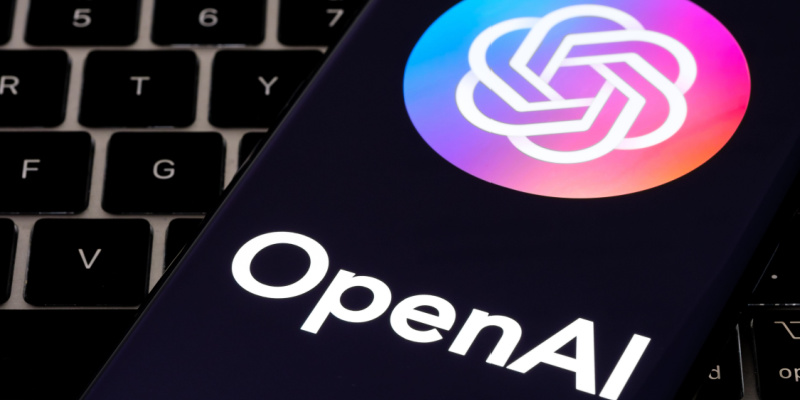How Do LLM Development Services Enhance Personalization in AI?
 Albert Peter
Albert Peter
The rapid evolution of artificial intelligence (AI) has transformed numerous industries, enabling organizations to leverage vast amounts of data for enhanced decision-making and customer experiences. Among the most exciting advancements in AI are Large Language Models (LLMs), which have fundamentally changed how we interact with technology. As LLM development services continue to mature, they play a crucial role in enhancing personalization, a key factor for businesses aiming to improve customer satisfaction and loyalty. This blog explores how LLM development services contribute to personalization in AI, focusing on their capabilities, applications, and the future of personalized AI experiences.
Understanding Large Language Models
Large Language Models, such as OpenAI's GPT-4 and Google's BERT, are designed to understand, generate, and manipulate human language. These models are trained on extensive datasets, allowing them to comprehend context, recognize patterns, and generate coherent responses. LLMs excel in tasks like text completion, translation, summarization, and even creative writing, making them versatile tools for various applications.
The Importance of Personalization in AI
Personalization is the practice of tailoring products, services, and content to meet individual user preferences and needs. In today's digital landscape, customers expect a personalized experience, whether shopping online, using a mobile app, or interacting with customer support. Personalization enhances user engagement, increases satisfaction, and drives loyalty, ultimately leading to higher conversion rates and revenue for businesses.
The Role of LLM Development Services in Personalization
Understanding User Intent
One of the primary advantages of LLMs is their ability to grasp user intent. By analyzing user input, LLMs can discern the underlying motivations behind queries or requests. This understanding allows businesses to offer tailored recommendations, ensuring that users receive the most relevant information and solutions.Dynamic Content Generation
LLMs can generate content that resonates with individual users. For instance, in e-commerce, an LLM can create personalized product descriptions based on a user's past purchases or browsing behavior. Similarly, content marketing strategies can be enhanced by generating tailored blog posts, articles, or social media updates that align with user interests, improving engagement and driving traffic.Conversational Interfaces
LLMs empower conversational AI systems, such as chatbots and virtual assistants, to engage users in a more natural and personalized manner. These AI agents can understand context, recall past interactions, and offer personalized responses, making user interactions feel more human-like. This capability is particularly valuable in customer support, where personalized assistance can significantly enhance user satisfaction.Predictive Analytics
By leveraging historical data and user interactions, LLMs can contribute to predictive analytics. Businesses can anticipate user behavior and preferences, allowing for proactive engagement. For example, a streaming service might use LLMs to recommend movies or shows based on a user's viewing history and preferences, increasing the likelihood of user retention.Sentiment Analysis
LLMs can analyze user-generated content, such as reviews and feedback, to gauge sentiment. Understanding user sentiment enables businesses to tailor their offerings, address concerns, and enhance overall customer satisfaction. For instance, if a company identifies negative sentiment around a particular product feature, it can make necessary adjustments and communicate improvements to users, fostering loyalty.Multi-modal Personalization
The future of personalization lies in multi-modal AI, where LLMs can integrate information from various sources, such as text, images, and audio. This capability allows businesses to create holistic user profiles, leading to more accurate and personalized recommendations. For example, a travel platform might combine user preferences for destinations, activities, and travel styles to create a fully customized travel itinerary.
Real-World Applications of LLM-Powered Personalization
1. E-Commerce
In the e-commerce sector, LLMs enhance personalization by analyzing user behavior, preferences, and purchase history. Businesses can implement personalized product recommendations, customized marketing messages, and tailored promotions, resulting in improved conversion rates and customer satisfaction. For example, Amazon's recommendation engine leverages LLMs to suggest products that align with user interests, significantly boosting sales.
2. Content Marketing
LLMs revolutionize content marketing by enabling businesses to create tailored content that resonates with their audience. Companies can utilize LLMs to generate blog posts, social media updates, and email campaigns personalized to specific user segments. This targeted approach increases engagement and drives traffic, ultimately leading to higher conversion rates.
3. Healthcare
In healthcare, LLMs can enhance patient engagement and care personalization. By analyzing patient data, LLMs can offer personalized treatment recommendations, educational resources, and appointment reminders. Additionally, virtual health assistants powered by LLMs can provide tailored support, answering patient queries and offering guidance based on individual health histories.
4. Education
In the education sector, LLMs can facilitate personalized learning experiences. Adaptive learning platforms can utilize LLMs to assess students' progress and tailor content to their learning styles and needs. This personalization enhances student engagement and improves learning outcomes.
Challenges and Considerations
While LLM development services offer significant benefits for personalization, several challenges must be addressed:
Data Privacy and Security: Personalization requires access to user data, raising concerns about privacy and data security. Businesses must ensure compliance with data protection regulations and implement robust security measures to safeguard user information.
Bias and Fairness: LLMs can inadvertently perpetuate biases present in training data. Developers must prioritize fairness and equity in AI systems to avoid reinforcing stereotypes or discrimination.
Context Understanding: While LLMs excel at language understanding, they may struggle with context in complex scenarios. Continuous refinement and training are essential to improve their contextual awareness and ensure accurate personalization.
Scalability: Implementing LLM-powered personalization at scale can be challenging, requiring significant computational resources and infrastructure. Businesses must invest in scalable solutions to ensure efficient operations.
The Future of Personalization with LLMs
As LLM development services continue to evolve, the potential for enhanced personalization in AI is vast. Future advancements may include:
Hyper-Personalization: Leveraging real-time data and advanced algorithms to create even more tailored experiences for users.
Emotion Recognition: Integrating emotion recognition technologies with LLMs to respond to users' emotional states, providing empathetic and personalized interactions.
Collaborative Filtering: Combining LLMs with collaborative filtering techniques to enhance recommendation systems, offering users suggestions based on collective preferences.
Conclusion
LLM development services are at the forefront of enhancing personalization in AI, revolutionizing how businesses interact with customers. By understanding user intent, generating dynamic content, and empowering conversational interfaces, LLMs enable businesses to deliver tailored experiences that resonate with individual users. As personalization becomes increasingly critical in today’s competitive landscape, organizations that harness the power of LLMs will be well-positioned to meet customer expectations, drive engagement, and achieve sustainable growth. The future of personalized AI is bright, promising innovative solutions that will reshape how we connect with technology.
Subscribe to my newsletter
Read articles from Albert Peter directly inside your inbox. Subscribe to the newsletter, and don't miss out.
Written by

Albert Peter
Albert Peter
A seasoned full stack developer with a passion for sharing his expertise in the world of web development.Through my insightful and informative blog, I provides valuable insights, tips, and tutorials for fellow developers looking to master the art of full stack development.